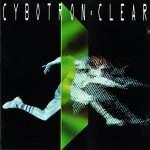4. Each technological extension involves an act of collective cannibalism. The previous environment with all its private and social values, is swallowed by the new environment and reprocessed for whatever values are digestible. Thus, Nature was succeeded by the mechanical environment and became what we call the “content” of the new industrial environment. That is, Nature became a vessel of aesthetic and spiritual values. Again and again the old environment is upgraded into an art form while the new conditions are regarded as corrupt and degrading. Artists, being experts in sensory awareness, tend to concentrate on the environmental as the challenging and dangerous situation. That is why they may seem to be “ahead of their time.” Actually, they alone have the resources and temerity to live in immediate contact with the environment of their age. More timid people prefer to accept the content, the previous environment’s values, as the continuing reality of their time. Our natural bias is to accept the new gimmick (automaton, say) as a thing that can be accommodated in the old ethical order.
5. During the process of digestion of the old environment, man finds it expedient to anesthetize himself as much as possible. He pays as little attention to the action of the environment as the patient heeds the surgeon’s scalpel. The gulping or swallowing of Nature by the machine was attended by a complete change of the ground rules of both the sensory ratios of the individual nervous system and the patterns of the social order as well. Today, when the environment has become the extension of the entire mesh of the nervous system, anesthesia numbs our bodies into hydraulic jacks.
5. During the process of digestion of the old environment, man finds it expedient to anesthetize himself as much as possible. He pays as little attention to the action of the environment as the patient heeds the surgeon’s scalpel. The gulping or swallowing of Nature by the machine was attended by a complete change of the ground rules of both the sensory ratios of the individual nervous system and the patterns of the social order as well. Today, when the environment has become the extension of the entire mesh of the nervous system, anesthesia numbs our bodies into hydraulic jacks.



